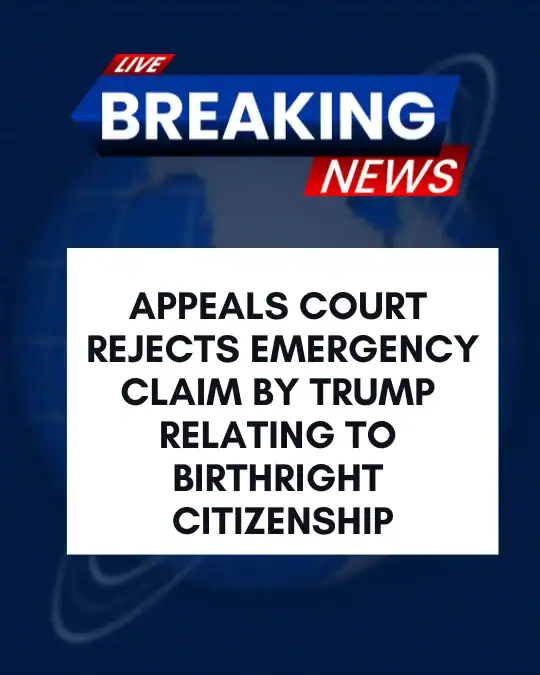Trump Order to Block Nationwide Birthright Citizenship

Listen to this article
By Staff Writer
On January 20, 2025, President Donald Trump signed Executive Order 14160 titled Protecting the Meaning and Value of American Citizenship. The measure sought to deny birthright citizenship to children born in the United States to undocumented or temporarily present parents.
Within days, lawsuits were filed. Spectrum News1 reported that 22 states and multiple advocacy groups joined together on January 21, 2025, to challenge the order in court. Judges across the country quickly issued injunctions, halting implementation before it could take effect.
The Supreme Court is now expected to rule on the order’s constitutionality in the coming term.
Legal Rationale Meets Judicial Pushback
The Trump administration argued that the Fourteenth Amendment’s guarantee of citizenship to anyone “born or naturalized in the United States” should not apply to children of undocumented or temporary-status parents. Critics pointed out that this argument was already rejected in 1898, when the Supreme Court ruled in United States v. Wong Kim Ark that children born on U.S. soil to foreign nationals are citizens at birth.
Federal judges echoed that precedent. PBS NewsHour reported that Judge John C. Coughenour in Washington state called the order “blatantly unconstitutional” when issuing one of the first nationwide injunctions.
In June 2025, the Supreme Court considered Trump v. CASA. According to The Washington Post, the Court limited the scope of universal injunctions but did not rule on the order’s constitutionality. Lower courts then moved swiftly to reinstate nationwide blocks, warning that partial enforcement would create a “patchwork of citizenship rights” and widespread confusion.
What’s at Stake
The Fourteenth Amendment, ratified after the Civil War, was designed to overturn the Dred Scott decision and guarantee citizenship to all persons born on U.S. soil. That principle, known as jus soli, has been consistently upheld, including in Wong Kim Ark and in the 1982 case Plyler v. Doe. Opponents of EO 14160 say it would risk creating a stateless population of U.S.-born children.
As PBS NewsHour noted, judges have warned that enforcing the order would cause “chaos in record-keeping and federal benefits.”
Supporters counter that citizenship is “a priceless and profound gift,” as Trump said when signing the order, and that it should not extend to children of parents who entered the U.S. unlawfully (White House Statement).
The Heritage Foundation has also argued that automatic birthright citizenship reflects “a fundamental misunderstanding of the 14th Amendment.”
Community Impact in Ohio
The debate is more than theoretical in Cleveland and across Ohio. In a July 2025 commentary, the Ohio Capital Journal wrote that “immigrants and their children made Ohio what it is” and that birthright citizenship has been essential to the state’s growth. If EO 14160 were enforced, Cleveland hospitals such as MetroHealth and the Cleveland Clinic could issue birth certificates that federal agencies refuse to recognize.
That would complicate access to passports, Social Security numbers, and even Medicaid enrollment for newborns. Local legal aid clinics warn they could face a surge in cases as families scramble to defend their children’s citizenship rights.
Ohio Attorney General Dave Yost has defended the order, telling the Ohio Capital Journal that the Fourteenth Amendment does not guarantee automatic citizenship for children of undocumented immigrants. For immigrant families in Cleveland, that stance feels deeply personal. Parents worry their children could grow up without the protections and opportunities that citizenship provides. Advocates caution that the policy would destabilize everyday life for families who have built their futures in Ohio.
Outlook
As of September 2025, EO 14160 remains blocked nationwide, but its fate lies with the Supreme Court. The Court’s ruling will determine whether the Fourteenth Amendment’s promise of citizenship at birth holds firm or can be narrowed by presidential order. Until then, immigrant communities in Cleveland and across the country live with uncertainty, wondering whether their children will be recognized as full citizens of the nation they call home.



